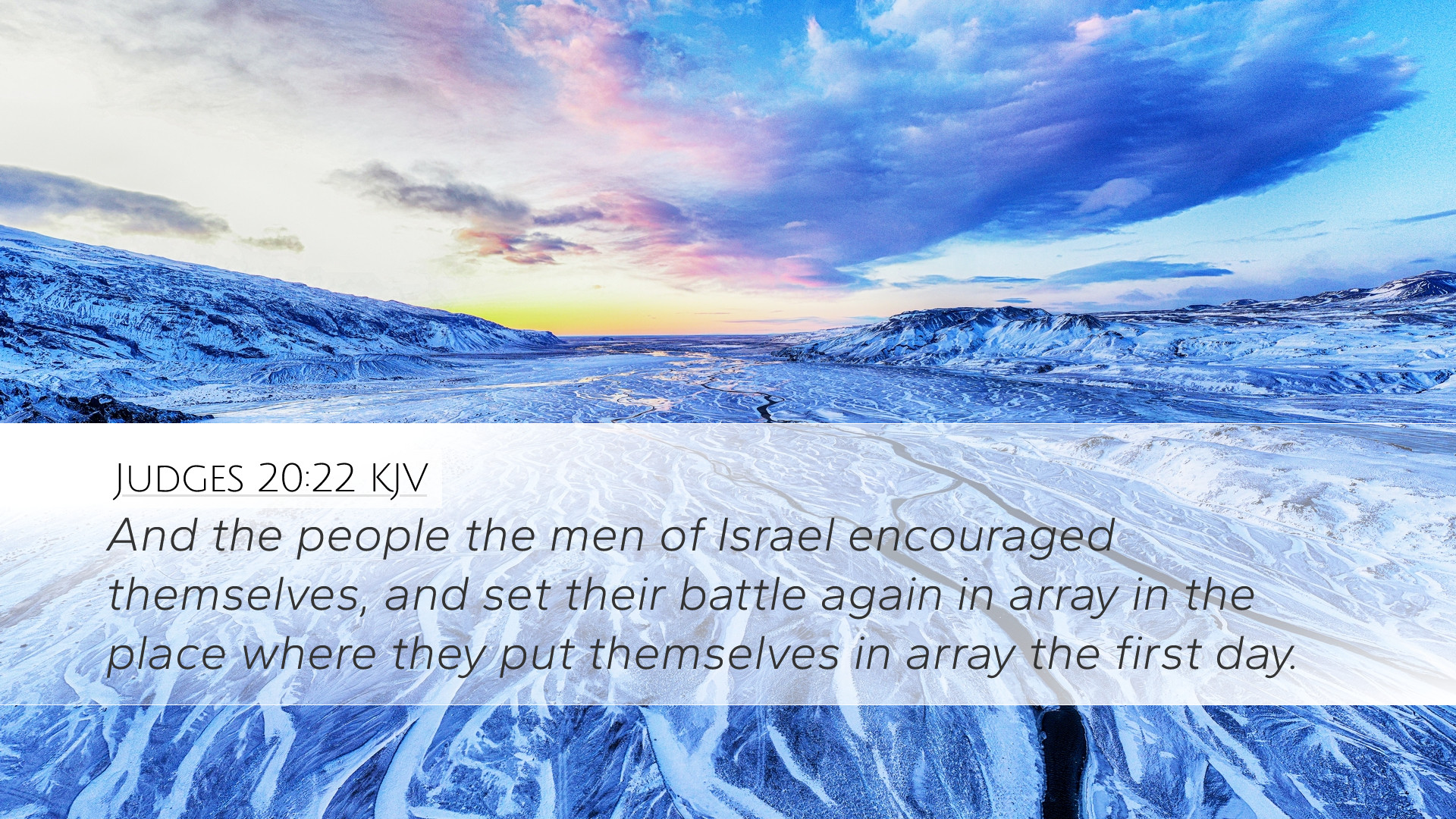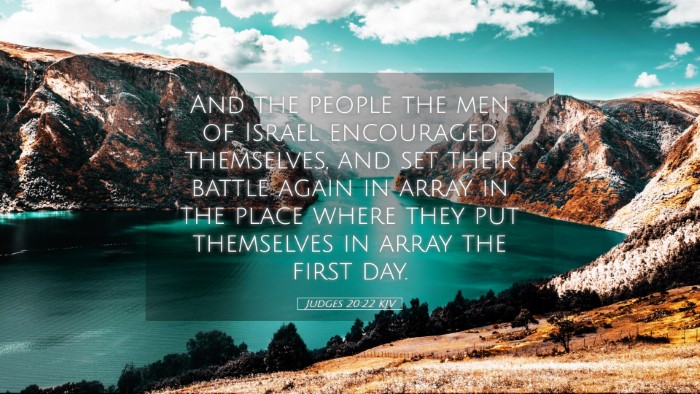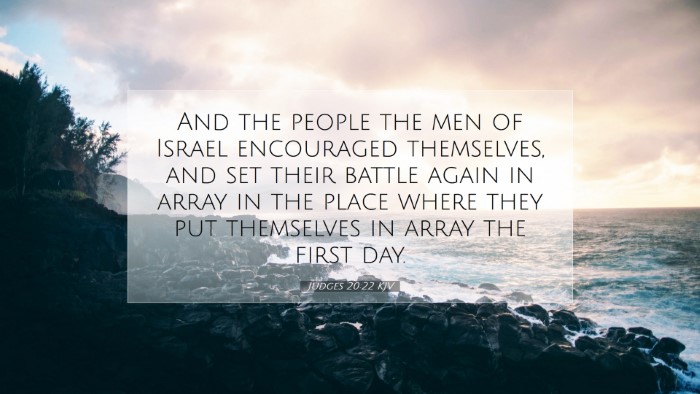Bible Commentary on Judges 20:22
Judges 20:22 reads, "But the people, the men of Israel, encouraged one another, saying, 'Take courage, for we will fight against Benjamin.'"
Context and Background
The book of Judges presents a turbulent period in Israel's history, characterized by cycles of sin, judgment, repentance, and deliverance. Judges 20 depicts a particularly dark episode involving the tribe of Benjamin, which had committed grievous sin by harboring wickedness among its members. The chapter stands as a testament to both the social chaos of the time and God's overarching sovereignty.
Analysis of Judges 20:22
This verse serves as a critical junction in the narrative. It reflects not only the resolve of the Israelites but also their unity in confronting a common adversary. The encouragement among the men of Israel highlights themes of solidarity and communal strength in the face of dire circumstances.
Theological Insights
- Encouragement in Community: The Israelites’ mutual encouragement signifies the importance of community in the face of challenges. This mirrors the New Testament's emphasis on the body of Christ supporting one another (Hebrews 10:24-25).
- Courage in God's Plan: The phrase “Take courage” evokes a call to rely on God’s promises. It reflects the necessity of trusting in divine strength amidst human struggles, reminiscent of the exhortations given to Joshua (Joshua 1:9).
- Divine Judgment and Human Action: Their resolve illustrates a balance of divine sovereignty and human agency. While God judges sin, He also calls His people to act righteously in defense of truth and justice.
Commentary Insights
Matthew Henry observes that the Israelites' rallying to confront Benjamin showcases not only their determination but also their sorrow over the moral decay represented by the crime against the Levite’s concubine. Henry emphasizes that it illustrates the gravity of sin in a community and the collective responsibility to confront it.
Albert Barnes highlights that this call to arms and mutual encouragement demonstrates a contrast between the spirit of the nations surrounding Israel and the unity that the Israelites displayed. He notes that their resolve to fight indicates a form of righteous indignation that can spur a people to justice, despite the risk of further bloodshed.
Adam Clarke also contributes to this discourse by pointing out that their courage is bolstered not merely by camaraderie but by a shared conviction in the righteousness of their cause. Clarke further stresses the significance of their unity, as it mirrors the unity of the body of Christ in striving against evil.
Lessons for Today
The encouragement of the men of Israel can be a profound lesson for contemporary believers. In times of moral challenge, the church is called not only to stand firm but to bolster one another's faith. The collective ethos of the Israelites serves as an invitation to engage together in prayer, action, and support.
- Unity in Purpose: As the early church was marked by unity in purpose, so too can the modern church learn from the Israelites in Judges. Collective endeavors to promote justice, righteousness, and biblical truth are pivotal.
- Courage in Confrontation: The call to take courage reminds believers to confront sin, both within the church and in the world, with a heart emboldened by faith.
- Reliance on God: Ultimately, any courage must stem from a deep reliance on God's strength. Like the Israelites, believers today are reminded to seek God's aid in every battle they face.
Conclusion
Judges 20:22 encapsulates significant themes of courage, community, and the necessity of confronting evil. By drawing on the lessons from this verse and the broader narrative of Judges, pastors, students, theologians, and Bible scholars can gain profound insights into the nature of moral responsibility and divine justice. As they encourage one another in the faith, they emulate the spirit of unity that is essential for facing the challenges of their own time.


